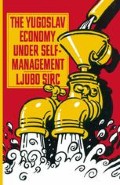Abstract
During the political relaxation in the 1960s a new breed of scholars came to the fore at Yugoslav universities: the sociologists. Originally sociology was not admitted to be a scholarly discipline by the communist countries, but later it was accepted and introduced in Yugoslavia and elsewhere (D 15.8.67). The sociologists started probing into the real attitudes of the population by polls and questionnaires. Evidence was produced of considerable disparity between the official doctrine and the real situation. The sociologists explained that the postulate that there would be no conflict in a socialist society, i.e. a society without private means of production, was ‘idealistic’ (95, p. 45; 127, p. 157), and that in so far as conflicts were absent in Yugoslav society, this was because they were suppressed, which was undesirable as it only made them worse. The basic point made at a conference of Yugoslav sociologists in 1972 was that conflicts should be legalised (Ep 2.2.72).
Access this chapter
Tax calculation will be finalised at checkout
Purchases are for personal use only
Preview
Unable to display preview. Download preview PDF.
Copyright information
© 1979 Ljubo Sirc
About this chapter
Cite this chapter
Sirc, L. (1979). Problems of Organisational Power. In: The Yugoslav Economy under Self-Management. Palgrave Macmillan, London. https://doi.org/10.1007/978-1-349-04093-3_12
Download citation
DOI: https://doi.org/10.1007/978-1-349-04093-3_12
Publisher Name: Palgrave Macmillan, London
Print ISBN: 978-1-349-04095-7
Online ISBN: 978-1-349-04093-3
eBook Packages: Palgrave Economics & Finance CollectionEconomics and Finance (R0)

